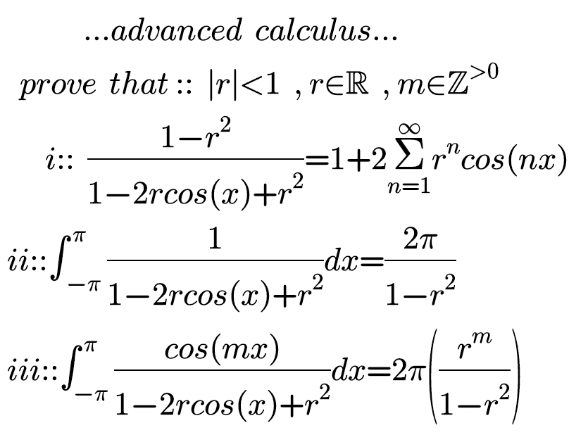
AllQuestion and Answers: Page 918
Question Number 127060 Answers: 0 Comments: 0

Question Number 127056 Answers: 1 Comments: 0

Question Number 127045 Answers: 2 Comments: 0
Question Number 127042 Answers: 2 Comments: 1
Question Number 127080 Answers: 0 Comments: 1
Question Number 127032 Answers: 2 Comments: 0

Question Number 127047 Answers: 2 Comments: 0
Question Number 127020 Answers: 3 Comments: 1
Question Number 127018 Answers: 1 Comments: 0
Question Number 127017 Answers: 2 Comments: 0
Question Number 127012 Answers: 1 Comments: 0

Question Number 127009 Answers: 1 Comments: 0
Question Number 127006 Answers: 1 Comments: 0
Question Number 127004 Answers: 0 Comments: 1

Question Number 127002 Answers: 1 Comments: 1
Question Number 126997 Answers: 1 Comments: 0
Question Number 126994 Answers: 1 Comments: 0
$$\:\int\:\frac{{x}^{\mathrm{4}} }{\mathrm{1}+{x}^{\mathrm{8}} }\:{dx}\:=? \\ $$
Question Number 126992 Answers: 0 Comments: 2
Question Number 126990 Answers: 1 Comments: 0
Question Number 126989 Answers: 1 Comments: 0
Question Number 126987 Answers: 1 Comments: 0

Question Number 126986 Answers: 1 Comments: 0
Question Number 126977 Answers: 1 Comments: 1
Question Number 126971 Answers: 1 Comments: 0
Question Number 126969 Answers: 2 Comments: 0
Question Number 126966 Answers: 0 Comments: 2

Pg 913 Pg 914 Pg 915 Pg 916 Pg 917 Pg 918 Pg 919 Pg 920 Pg 921 Pg 922
